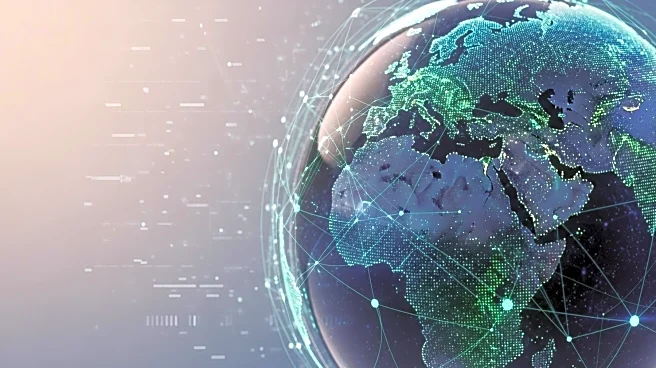What's Happening?
The European Union is set to sign the United Nations Convention against Cybercrime, following authorization from the Council of Europe. This international treaty aims to establish common standards globally to improve cooperation on cybercrime and facilitate the exchange of electronic evidence for criminal investigations and prosecutions. The UN General Assembly adopted the Convention in December 2024, allowing regional economic integration organizations like the EU to sign and ratify it, provided at least one member state does so.
Why It's Important?
The signing of the UN Convention against Cybercrime by the EU marks a significant step in global efforts to combat cybercrime. By establishing common standards, the Convention aims to streamline international cooperation, making it easier for countries to work together in tackling cyber threats. This move is crucial for enhancing cybersecurity measures, protecting sensitive data, and ensuring the integrity of digital infrastructures. It also underscores the EU's commitment to addressing cybercrime, which poses a growing threat to businesses, governments, and individuals worldwide.
What's Next?
With the EU's impending signature, member states will likely begin the process of ratifying the Convention, which could lead to more robust international collaboration in cybercrime investigations. This may prompt other regions to follow suit, potentially leading to a more unified global approach to cybersecurity. Stakeholders, including governments and cybersecurity firms, may need to adapt their strategies to align with the new standards set by the Convention, fostering a more coordinated effort in combating cyber threats.
Beyond the Headlines
The Convention's focus on electronic evidence exchange highlights the increasing importance of digital data in legal processes. This could lead to advancements in digital forensics and the development of new technologies to aid in cybercrime investigations. Additionally, the Convention may influence future legislation on data privacy and protection, as countries work to balance security needs with individual rights.









